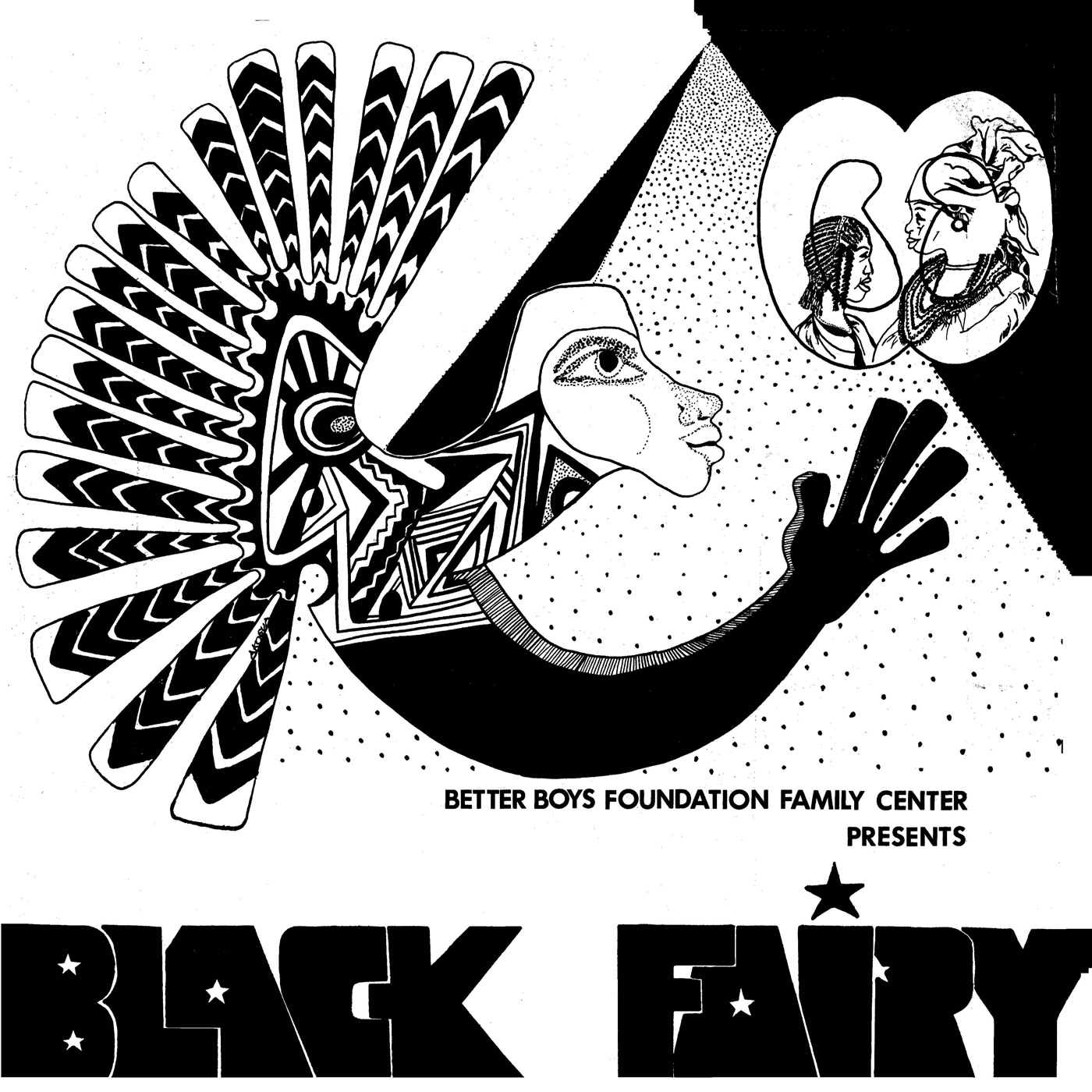
Details:
Heavyweight Vinyl / Original Black and White First Private Press Edition / U.S.A. Original “tip-on” Handly Glued Prints on Thick Cardboard /
Personnel:
Barry Ray, Denise Llorens, Gregory Curry, Jerry Johnson, Patricia Crawford,Rhonada Myers – Backing Vocals
Larry Burton – Bass
Michael Llorens – Drum
Anthony Llorens, Jerry Johnson – Electric Piano
John Llorens – Guitar
Earl “Chico” Freeman – Horns
Anthony Llorens – Organ
Jerry Johnson – Percussion
Jerry Johnson- Piano
Gregory Curry – Vocals
Tony Llorens – Vocals
Eugene Perkins – Written By
Notes:
Black Fairy is a fairy tale, but not in the traditional sense. When writing this play, i did not want to re-create the types of fantasies which are so common in Childrens theater. There is no kind of magic that can relieve black children from the oppression that retards their development. However, i do feel giving them a better understanding of their heritage can help them achieve their true potential. And those of us who are concerned with their development should try to expose them to knowledge that gives them a positive sense of identity. Although i do feel a chldren’s play should be entertaining, I also feel it should be educational. Also, because there are so few children’s plays which reflect the black experience, I wanted to write a play that Black children could identify with.
“Black Fairy” is a musical drama about a black fairy who lacks pride in herself and feels she has to offer Black children. But when she meets Black Bird and Queen Mother (Who take her to ancient Egypt, East Afrika, a southern slave plantation and the streets of Harlem) she begins toget a better understanding of her heritage. Her journey through the past enables Black Fairy to meet Aesop, Brer Rabbit, Brer Fox, Uncle Remus, Stag-o-lee, Leadbelly and many other characters in Black folklore and Black history. At the end of her journey, Black fairy realizes that “Being Black is nothing to be ashamed of” and is then able to share her knowledge with other Black children. Even though Black Fairy doesn’t completely resolve her dilemma, having a knowledge of her heritage does give her more confidence to cope with the future.
During ther summer of 1974 “Black Fairy” was performed for over four thousand children in Chicago. And, in April of 1975, it played to over two thousand children in Detroit at Mercy College.
“Black Fairy” is the only the first of many children’s plays we hope to produce at the Better Boys Foundation. There is an Afrikan proverb which says:”Children are the reward of life”. We at Better Boys Foundationm are dedicated to this belief, and feel that helping childrren to appreciate their heritage is one means of showing our concern for their development.

